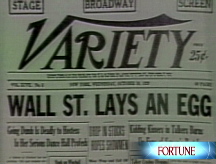Dollar rises amid economic uncertainty
U.S. currency edges higher against euro, pound and yen as investors tread lightly.
NEW YORK (CNNMoney.com) -- The dollar edged higher against major currencies Tuesday as negative news about the state of the economy continued to weigh on investors.
The U.S. currency rose slightly against the 15-nation euro, which slipped 0.2 cents to $1.263 from $1.265 late Monday. The dollar also gained against the British pound, which fell 0.3 cents to $1.496 from $1.499, and rose against the Japanese yen, up ¥0.32 to ¥96.75.
Currency traders have also been tracking the stock market for signs on the long-term health of the economy. For the past several weeks, every time stocks fell, the dollar rose as investors sought safety in the greenback. U.S. equities were volatile Tuesday as investors remained concerned about a deepening recession.
The dollar was trading in a narrow range, which some analysts said could be a sign of stability for all currencies.
There is also growing sentiment that the dollar may be regaining its position as the world's top currency, especially as the global crisis deepens around the world and takes its toll on foreign currencies.
"The reason that you're not seeing as much [dollar movement] is that the dollar is retaking its position as the benchmark," said Shawn Beecher, vice president of global operations at currencies brokerage i-TradeFX.
Furthermore, appetite for risk among investors has been squelched as 2008 draws to a close, said Kevin Chau, foreign exchange analyst with research firm IDEAGlobal in New York.
"Asset managers are playing it cool right now," said Chau.
Dour economic data: A series of economic reports continued to show weakness. Home prices plunged a record 9% in the third quarter as foreclosures continue to flood the market, a real estate trade group said Tuesday.
And homebuilders' confidence in the housing market again plunged to a record low, a trade group said Tuesday.
Separately, October wholesale prices fell 2.8%, according to the Labor Department, as flagging energy demand continued to signal a general slowdown in economic activity.And on Capital Hill, Treasury Secretary Henry Paulson and Federal Reserve Chairman Ben Bernanke told lawmakers Tuesday that the $700 billion bailout program was making progress despite increasing criticism of it in recent weeks. ![]()



